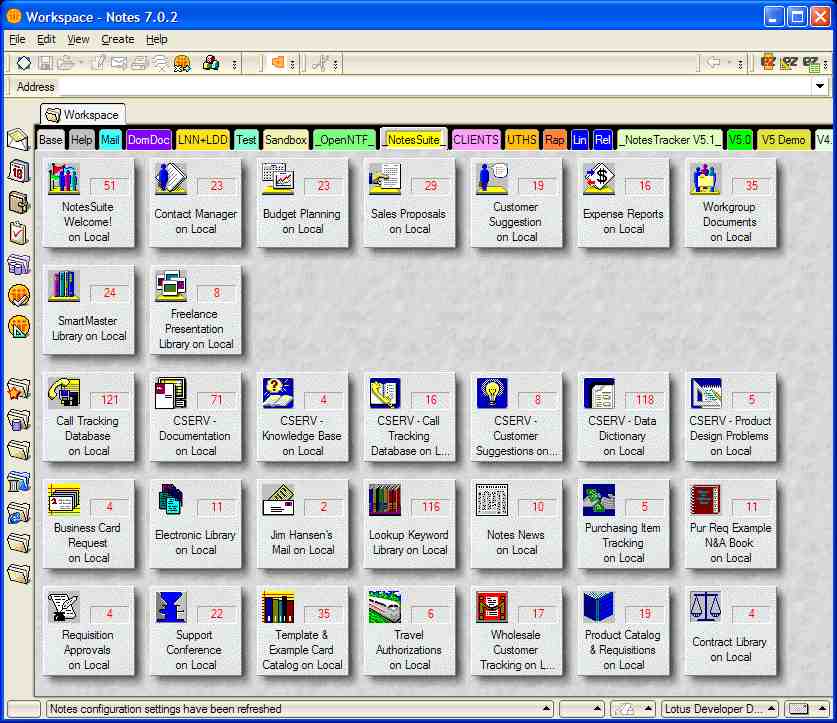Years ago, I worked for an accounting and consulting firm here in Minneapolis. They ran their systems on Lotus Notes.
For those of you born after 1985, Lotus Notes is an operating system that runs all sorts of programs internally for big organizations, including email. It’s actually surprisingly easy to use, and simple. But it’s extremely dated.
Yet, I know of AT LEAST two big companies in Minneapolis that are still using Lotus Notes. As a polite reminder, it is the year 2014. The internet has been in play now for a full 25-plus years.

Now, I don’t have a huge problem with Lotus Notes, on the surface. It does its job. I’m sure it’s a fine operating platform.
But here’s the thing: When your employees go home at night, what programs and platforms are they using?
Most likely, they’re accessing sites and platforms like:
* Facebook, Instagram and Twitter
* Blogs/web sites (which largely run on WordPress and other dynamic and intuitive content management systems, which make them very easy to navigate)
* A wealth of apps on phones that allow these employees to do everything from bank to make travel reservations to buy clothing with just a few simple clicks.
And yet there’s Lotus Notes. I mean, it really does LOOK like a program that was used on the world’s first computer.
And it’s systems like Lotus Notes that are killing employees.
Why?
Because employees don’t discriminate. They see intuitive, easy and painless experiences on their iPads and phones at home. They tweet freely. Buy merchandise by swiping and clicking. And browse a myriad of blogs and sites using fantastic tools like Flipboard.
And then they come back to work. And, they have to deal with ornery VPNs, password issues, and horribly designed and orchestrated internal systems (not saying Lotus Notes is any of these things, really; just indicative of this larger issue).
It’s gotta be frustrating the heck out of employees (I say “gotta be” because I am not an employee).
Now, I’m not saying I have an answer. That’s left for people MUCH smarter than me. All I’m saying is that there’s a big problem and disconnect for employees of larger companies across the U.S. today.
What are the specific problems facing employees when it comes to internal systems? Here’s a few I see:
File sharing is lacking
Much of the file-sharing I do with clients these days happens on Google docs. It’s seamless. Easy. And it saves both me and my clients a LOT of time. Then, I think about the painful process some companies go through sharing files on “drives” and editing docs via email. I cannot overstate how big of a waste of time using that approach has become in light of file sharing and collaboration tools like G-docs.
Collaboration and presentation tools with vendors/customers needs to improve
When it comes to collaboration tools, I, like many, have grown fond of tools like Dropbox and Basecamp. Since they’re web-based, they work well with any system and any computer. But, for some reason, many companies like to use their own tools for collaboration and file-sharing–which creates immense headaches and added (and needless) hassle for vendors, partners and customers. Dear companies: Make it EASIER for us to work with you–not harder. This will be table stakes in the years ahead.
Publishing options need to be faster. Much faster.
“Client A” has a web site. It has hundreds of pages of content. It’s run by the client’s web team. And, in order to publish a piece of content, you have to go through about 14 steps of approvals and governance. It’s a story that’s still all too familiar–and again, the year is 2014. With the publishing tools available to today’s companies (big AND small), there is absolutely NO reason any company should be in this kind of position. Publishing content should now be a task that can be accomplished inside half hour (even with approvals and governance, if the issue is important enough). I think we’ve long past the time when that point is even debatable.

0 Comments